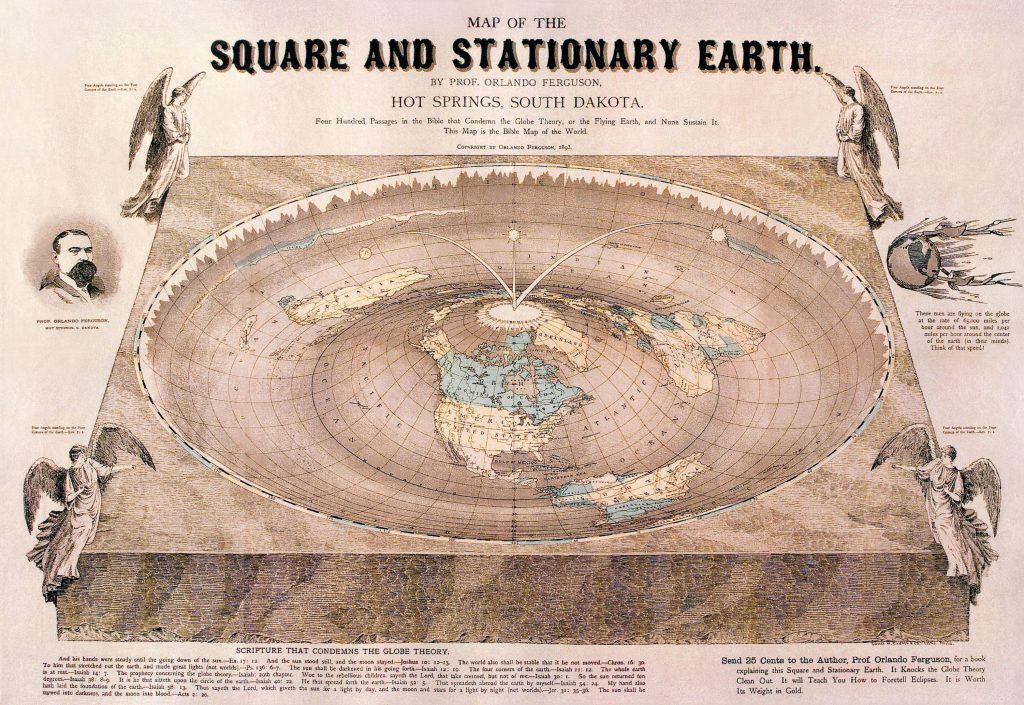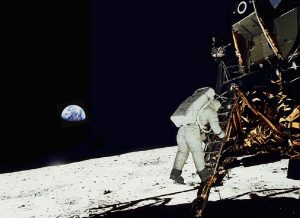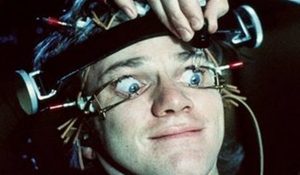The method for checking our many delusions—that the Harry Potter letter is going to arrive for us any moment, that god is carefully listening to my prayers about the cancer He gave my mother, that the earth is flat, the moon shot never happened, and that fluoride in the water makes you infertile, subservient, or aggressive—is measuring the details of the delusion against external facts. Many times people check what they believe by contacting their equally deluded peers, but by far the best confirmation comes from people who have disinterestedly done the research and by conducting experiments that can be easily reproduced.
For instance, if the Harry Potter letter is found to be only a product of a set of books which we  gradually learn as we grow older are fictional, then that fact might temper how much time we spend waiting for the owl carrier service at the window. If we want to double check our wish that the series of books reports on the truth we might want to avoid asking our friends at a Harry Potter dress-up party. The interlocutor might begin by reading some biographical information about J. K. Rowling and by reading into the production of the films. If they find references to the film crew checking their facts against Hogwarts School of Witchcraft and Wizardry then they might
gradually learn as we grow older are fictional, then that fact might temper how much time we spend waiting for the owl carrier service at the window. If we want to double check our wish that the series of books reports on the truth we might want to avoid asking our friends at a Harry Potter dress-up party. The interlocutor might begin by reading some biographical information about J. K. Rowling and by reading into the production of the films. If they find references to the film crew checking their facts against Hogwarts School of Witchcraft and Wizardry then they might  have reason to expect that the popular children’s book—which, strangely, is frequently read by adults—might be true. If not, and their careful examination of their own forehead—regardless of many times it is done—turns up blank skin, then the books might be merely a wildly popular series by an author who won the writing lottery by having a rather pedestrian work become highly successful.
have reason to expect that the popular children’s book—which, strangely, is frequently read by adults—might be true. If not, and their careful examination of their own forehead—regardless of many times it is done—turns up blank skin, then the books might be merely a wildly popular series by an author who won the writing lottery by having a rather pedestrian work become highly successful.
If I have prayed to god for my mother’s cancer to be removed, and that has had no effect, even if I have employed thousands to pray with me to amplify the signal, or to bully god  with their numbers, then I have to realize that either He is a sadist who cannot be moved by my plight, or that perhaps—more logically—He doesn’t exist. I could ask my minister or priest, or monk or imam, or guru, but there would be little point in that if I am seeking for real information. Asking anyone whose employment is dependent on what truth they present means that they might well fudge the facts, rather like asking the global climate change denier in the employ of an oil company if global climate change is real.
with their numbers, then I have to realize that either He is a sadist who cannot be moved by my plight, or that perhaps—more logically—He doesn’t exist. I could ask my minister or priest, or monk or imam, or guru, but there would be little point in that if I am seeking for real information. Asking anyone whose employment is dependent on what truth they present means that they might well fudge the facts, rather like asking the global climate change denier in the employ of an oil company if global climate change is real.
I can do some discreet fact checking, without informing my peers at the church, by reading into the possible origins of the bible—which will be found to be very similar to that of the Harry Potter books, albeit with more collaboration between committees and authors—looking through the Council of Nicaea  and other such meetings where the church leaders of the time decided on the nature of Jesus, the timing of Easter, and perhaps more importantly, the contents of the bible.
and other such meetings where the church leaders of the time decided on the nature of Jesus, the timing of Easter, and perhaps more importantly, the contents of the bible.
If those arguments do not do enough to convince, it is perhaps worthwhile for the honest seeker to turn to those dishonest seekers who have tried to substantiate their belief in the existence of god over the years. One famous example would be William Paley’s use of his Watchmaker’s Analogy, in which he operates out of the almost laughable premise that the universe is like a watch found on the beach, and that its order presupposes a watchmaker. He never examines his own premises and he ends up with an argument that a fellow grad student Darryl, when I was doing my Masters, called rather accurately “frankly embarrassing.” These philosophers start as Christian apologists and not surprisingly they end the same, for they are so unwilling to budge from their set beliefs that they merely rationalize them in by times quite disingenuous ways.
You can’t really check the existence of god by asking those thinkers who began by believing that, and then—surprise—came to the conclusion that they were right; you need to find those who believe in no such being and then employed reasoning to find out what might exist. Except, of course, without already believing people have never indulged in such frivolous argumentation. If a stroll through the origins of the bible, and the works of apologists does not convince me, by this time my mother is likely dead, and like the apologists I will have to work through a rationale to explain why He let her die regardless of my expostulations. If the seeker is even pondering such a question then they are already lost and, like the weight watchers client wondering how much cake they can carry to the car in one go, they might as well keep on howling at the empty universe.
A worry about the flat earth—however silly that might appear—can be quickly tested by easily available observations here on the planet’s surface, if the one who is worrying  about something so arcane as the curvature of the surface of the planet is unwilling to trust institutions such as NASA and ESA. We are not as well served asking an illiterate rap artist about astronomy or planet composition as the public media might indicate. Likewise, a jury of our peers might support or confound the idea, but that would scarcely have anything to do with the facts of the earth’s shape. Luckily, for the one who is interested in the question, other great thinkers have put some time into answering it. After all, if Eratosthenes from over two thousand years ago can go into a well and not only prove the earth is round—in fact that was well known to the Greeks—but can measure its circumference with an accuracy that is surprising given the limited tools at his disposal, we might do the same today.
about something so arcane as the curvature of the surface of the planet is unwilling to trust institutions such as NASA and ESA. We are not as well served asking an illiterate rap artist about astronomy or planet composition as the public media might indicate. Likewise, a jury of our peers might support or confound the idea, but that would scarcely have anything to do with the facts of the earth’s shape. Luckily, for the one who is interested in the question, other great thinkers have put some time into answering it. After all, if Eratosthenes from over two thousand years ago can go into a well and not only prove the earth is round—in fact that was well known to the Greeks—but can measure its circumference with an accuracy that is surprising given the limited tools at his disposal, we might do the same today.
We can also test the flat earthers’ assertion that the ship that appears to dip below the horizon due to the curvature  of the earth is merely being swallowed by an optical illusion, a fact they tell us can be confirmed by using a telescope or binoculars. This is so quickly verified that I’m surprised they even air it amongst their other fever dreams about scientific process. A few hours on the beach will assure the tired eyes of the observer that the ship indeed disappears below the horizon and that someone who stands on the shore in New York will not be able to see the Namibian coast regardless of how powerful their telescope or how patient their attention.
of the earth is merely being swallowed by an optical illusion, a fact they tell us can be confirmed by using a telescope or binoculars. This is so quickly verified that I’m surprised they even air it amongst their other fever dreams about scientific process. A few hours on the beach will assure the tired eyes of the observer that the ship indeed disappears below the horizon and that someone who stands on the shore in New York will not be able to see the Namibian coast regardless of how powerful their telescope or how patient their attention.
If I refuse to believe that humans walked on the moon, I can either wait until telescopes are developed that  enable me to see with my own eyes, or I can bounce a laser off one of the many “retro-reflector arrays” that will send the laser back to its source. I can not only prove the mirror is on the moon, but I can also measure the distance to the moon with an accuracy of millimetres. I may also reference those Russian politicians who were irate that the Americans made it to the moon first, for certainly they would have spent as much time and resources as possible to prove the hoax. I can also refer to photography taken by the landing teams which is striking similar to the images we have from contemporaneous telescopes.
enable me to see with my own eyes, or I can bounce a laser off one of the many “retro-reflector arrays” that will send the laser back to its source. I can not only prove the mirror is on the moon, but I can also measure the distance to the moon with an accuracy of millimetres. I may also reference those Russian politicians who were irate that the Americans made it to the moon first, for certainly they would have spent as much time and resources as possible to prove the hoax. I can also refer to photography taken by the landing teams which is striking similar to the images we have from contemporaneous telescopes.
If, after that more objective examination, I still don’t believe the evidence, then such is the depth of my delusion that a trip to the moon might be necessary to answer my concerns. Even then I suppose, such is my delusion that I might refuse to  believe the trip happened, and might suppose myself to be in a saltwater tank being fed film strips from old movies. Such a person might also refuse to believe they are on a sphere, might spend their time on their knees praying to their mute god, and waiting by the window for an owl. If that is the case you might as well tell them that they are not on earth, but rather part of an experiment to test human reasoning. The experiment is taking place on Mars and is and perpetuated by grey aliens of dubious and transitory
believe the trip happened, and might suppose myself to be in a saltwater tank being fed film strips from old movies. Such a person might also refuse to believe they are on a sphere, might spend their time on their knees praying to their mute god, and waiting by the window for an owl. If that is the case you might as well tell them that they are not on earth, but rather part of an experiment to test human reasoning. The experiment is taking place on Mars and is and perpetuated by grey aliens of dubious and transitory  interest in their rectal regions. Such a person might well believe anything, so they should at least have access to an inviting and inventive story.
interest in their rectal regions. Such a person might well believe anything, so they should at least have access to an inviting and inventive story.
For those worried about the effects of fluoride in their  water, it is an easy enough matter to look through the scientific journals for papers on epidemiology. They can examine the reams of data—which was collected for reasons that do not relate to their fears and therefore should not be contaminated by any wish to dissemble—and find if a population which uses fluoride is any different than those who do not. As well, anyone worried about fluoride use could conduct their own experiment. They could ingest fluoride every day for a few days—as long as it wasn’t a dose in excess of that in our water systems for it bears repeating that it can be toxic in more than trace amounts—and see if their behaviour or abilities or health changed. Of course if they already believe in such an outcome, that might well influence their understanding of what is happening to their body or their mind. That experiment is better done—as it is always—by examining the many cities who fluoridate their water and those who refuse.
water, it is an easy enough matter to look through the scientific journals for papers on epidemiology. They can examine the reams of data—which was collected for reasons that do not relate to their fears and therefore should not be contaminated by any wish to dissemble—and find if a population which uses fluoride is any different than those who do not. As well, anyone worried about fluoride use could conduct their own experiment. They could ingest fluoride every day for a few days—as long as it wasn’t a dose in excess of that in our water systems for it bears repeating that it can be toxic in more than trace amounts—and see if their behaviour or abilities or health changed. Of course if they already believe in such an outcome, that might well influence their understanding of what is happening to their body or their mind. That experiment is better done—as it is always—by examining the many cities who fluoridate their water and those who refuse.
As this series of arguments indicates, I have little patience for those who refuse to examine the premises of their fantasies. Fantasies make great fodder for books, and I’ve been responsible for more than a few incursions into that world myself, but they are not useful, healthy, or relevant to our lived experience. Waiting by the window will not bring an owl, regardless of my wishes, prayer will not save my mother, the earth’s shape doesn’t change to correspond with my ignorance of physics, awe-inspiring historical achievements in the hard sciences will not bend to my refusal to admit their truth, and the fluoride in my water will do little beyond hardening my enamel even if I fear it is changing my internet conspiracy-besotted brain.
